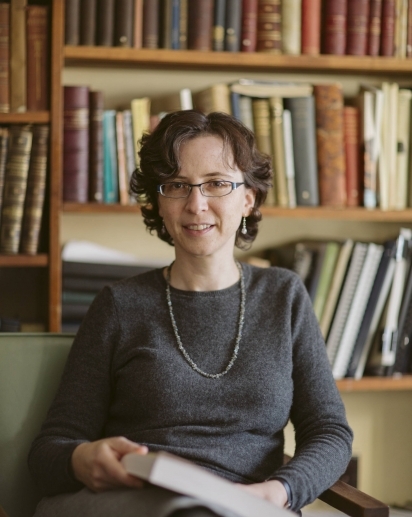Three questions for classics professor, most cancers affected person Julie Hruby
My Dartmouth colleague Professor Julie Hruby reached out to ask if I assumed her story can be a very good match for my “3 Questions” collection. Julie shared with me the challenges (and items) of navigating a tutorial profession whereas managing a most cancers prognosis. I requested if Julie can be keen to share her story with this neighborhood, and she or he agreed.

Q: Inform us your story.
A: Virtually precisely 12 years in the past, I used to be recognized with a left frontal astrocytoma (a sort of mind most cancers), simply after I moved from Berea School to Dartmouth School. I’ve lived for about double my median life expectancy, for which I’m exceedingly grateful. I’ve gone by three rounds of surgical procedure (one in 2012, a second in 2014 and a 3rd in 2022), and one spherical of radiation (after surgical procedure in 2014). I’m newly on an immunotherapeutic remedy that has simply been authorized by the FDA, which is an actual breakthrough, and which holds nice promise for delaying the time to development, not less than statistically. However my sickness will finally be deadly, or not less than, it is going to be if I don’t get hit by a meteorite or one thing.
Surprisingly, I had had debilitating despair earlier than the primary spherical of surgical procedure, and that grew to become higher fairly actually immediately. There was no comparability: Colours have been brighter, flavors have been extra intense and pleasant, and I didn’t really feel like I used to be wading by molasses anymore. You may’t consider the extent to which the alleviation of despair made the prognosis extra palatable!
Q: How has your prognosis impacted your educational profession?
A: Nicely, I’ve been on the tenure clock since 2012, though two of these years have been attributable to COVID, as a result of I do fieldwork. Really, I’ve been on the tenure clock since 2008, should you depend my time at Berea School. So, that’s a factor.
When it comes to incapacity, I don’t suppose it was apparent by the primary couple of rounds of surgical procedure, however I did get ferocious migraines, and I periodically misplaced the power to recall nouns. For the reason that final spherical of surgical procedure, nonetheless, I’m clearly coping with a incapacity, particularly aphasia. I can learn simply advantageous, and I can kind reasonably effectively, however I’ve needed to relearn easy methods to communicate, in 4 languages (English, fashionable Greek, German and Latin, so as of declining capability).
After the final spherical of surgical procedure, I might solely say “sure” and “sure, however” (for no). By speech remedy, I’ve principally regained my English, although I wrestle with correct nouns as a result of there aren’t any synonyms for these, and with technical phrases (ditto). I additionally wrestle after I’m drained, and I’m principally drained after about 4 hours, largely from making an attempt to talk, so I attempt to maintain off on doing something previous that. Additionally, when there’s numerous ambient noise, that’s actually difficult.
Fortunately, I’ve extra tasks than I might do in three lifetimes, and I simply maintain pondering up extra, so I maintain an inventory. However writing is unquestionably tougher than it was; I used to put in writing fantastically, and I can truly acknowledge the correct phrases, so I’ve been utilizing ChatGPT as a thesaurus.
Q: What do you suppose our neighborhood ought to find out about educational careers and incapacity?
A: Sustaining a tutorial profession is tremendously tough, in one of the best of circumstances. And it’s a lot, a lot more durable in circumstances which can be extra making an attempt. In my expertise, you need to both enable individuals to take the lead and ask for lodging, or if you already know that the particular person is disabled, you need to ask what they want, with out preconceptions.
The apply of creating particular person departments pay for any disabilities that come up is horrible, each when it comes to fairness—small departments have a tendency to not have the assets that enormous ones do—and when it comes to fundamental equity. For instance, if I have been to ask for a low flicker-rate pc monitor, my colleagues would possibly resolve that they don’t have to fund a considerably dearer stage for a digital macroscope. (I ought to say, this has by no means occurred to me, however it conceivably might in a extra resource-poor setting.)
For people who find themselves in a state of disaster, you might learn this. Bear in mind that the extent to which different lecturers could also be keen to reveal invisible disabilities is very variable. For instance, don’t make assumptions both method about candidates for jobs—they could or might not have invisible disabilities, and also you may not know, however that’s fully OK.

